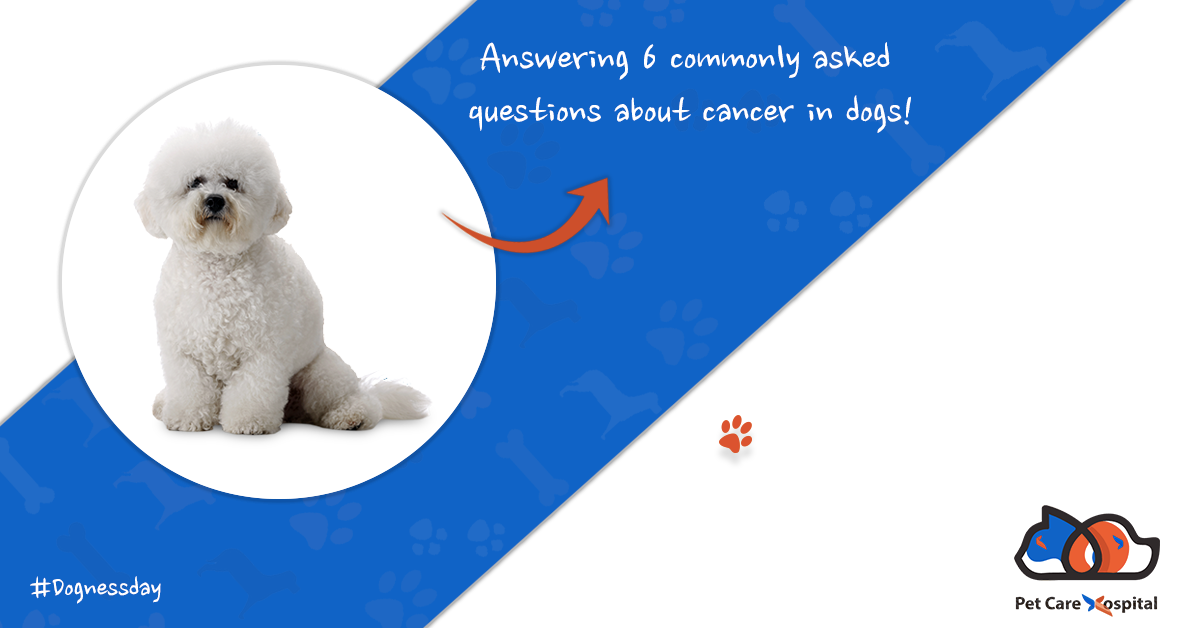
Cancer is the leading cause of death in dogs but almost half of the cancers are curable if caught in early stages. Here I will answer the 6 commonly asked questions about cancer in dogs:
Q: Is cancer really common in dogs and some of the common cancers found in dogs?
Yes, it is very common for older dogs to have cancer. Almost 50% of the dogs develop cancer after the age of 10.
Malignant Lymphoma is a tumor of the lymph nodes, cell tumor which is a type of skin cancer, mammary glands tumor or breast cancer are the most commonly found cancers in dogs.
Q: What are the symptoms of cancer in dogs?
-
Abnormal swellings that persist or continue to grow
-
Sores that don’t heal
-
Weight loss
-
Loss of appetite
-
Bleeding or discharge from any body opening
-
Offensive odor
-
Difficulty eating or swallowing
-
Hesitation to exercise or loss of stamina
-
Persistent lameness or stiffness
-
Difficulty breathing, urinating or defecating.
Q: What is the root cause of high cancer rates in dogs?
Dogs are loved dearly by their family which does make a difference in the age and hence we’re seeing more animals live to an age where they develop cancer.
Dogs who were spayed before experiencing their first heat cycle have a 0.5% chance of developing mammary cancer during their lifetime.
This increases to 8% if they are spayed after they have experienced one heat cycle, and 26% if spayed after they have experienced two heat cycles.
Q: What breeds are more prone to cancer? Are mixed-breed dogs less likely to get cancer?
While cancer can, unfortunately, strike any breed of dog at any age, there are certain breeds that have higher instances of the disease like Rottweiler, Bernese Mountain Dog, Bouvier des Flandres, German Shepherd, Great Dane, Labrador Retriever, Bichon Frise, Boxer
Mixed-breed dogs come from a much larger gene pool, they would be less likely to get genetic-based cancers.
Q: How can I prevent cancer in my dog?
-
Don't allow your dog to eat more than it requires to avoid obesity,
-
Feed your pet anti-inflammatory diet,
-
Dogs should not be exposed to toxins,
-
Allow your dog to not get neutered or spayed, at least until the age of 18 months to two years and,
-
Refuse unnecessary vaccinations.